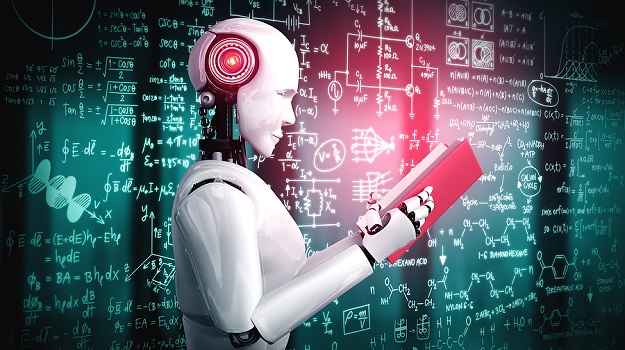The Role of Artificial Intelligence in Engineering
Artificial intelligence (AI) is revolutionizing numerous industries, and engineering is no exception. As AI technologies continue to evolve, they are becoming integral tools for engineers, helping to enhance efficiency, accuracy, and innovation across various fields.
Enhancing Design and Simulation
One of the most significant impacts of AI in engineering is in the area of design and simulation. Engineers can now leverage AI algorithms to optimize designs by analyzing vast datasets and identifying the best configurations. This ability to rapidly iterate on designs enables engineers to create more efficient and effective products.
Moreover, AI-powered simulation tools allow for more accurate modeling of real-world scenarios. These simulations help predict how a product will perform under different conditions, reducing the need for physical prototypes and accelerating the development process.
Improving Predictive Maintenance
AI is also transforming maintenance practices through predictive maintenance solutions. By analyzing data from sensors embedded in machinery, AI systems can predict when equipment is likely to fail or require maintenance. This proactive approach helps prevent unexpected breakdowns, reduces downtime, and extends the lifespan of equipment.
Optimizing Supply Chain Management
In engineering projects that involve complex supply chains, AI plays a crucial role in optimizing logistics. Machine learning algorithms can analyze supply chain data to forecast demand, manage inventory levels efficiently, and improve delivery schedules. This optimization leads to cost savings and ensures that projects stay on track.
Facilitating Automation
Automation is another area where AI significantly impacts engineering. From automating routine tasks such as data entry to controlling robotic systems on manufacturing floors, AI technologies increase productivity while minimizing human error. Engineers can focus on higher-level strategic tasks as machines handle repetitive processes.
The Future of Engineering with AI
The integration of AI into engineering practices continues to grow as technology advances. Future developments may include even more sophisticated decision-making systems capable of handling complex engineering challenges with minimal human intervention.
As engineers embrace these technologies, they will unlock new possibilities for innovation across industries such as aerospace, automotive, construction, and energy. The potential for smarter cities, sustainable infrastructure solutions, and advanced manufacturing processes will become increasingly attainable with AI-driven engineering approaches.
Conclusion
The role of artificial intelligence in engineering is transformative. By enhancing design capabilities, improving maintenance strategies, optimizing supply chains, facilitating automation processes—and much more—AI empowers engineers to push boundaries like never before. As this technology continues evolving at a rapid pace alongside other emerging trends such as IoT (Internet Of Things), blockchain technology etc., it promises exciting opportunities ahead within every facet imaginable related directly or indirectly towards achieving greater success through innovative means previously thought impossible until now!
Exploring AI in Engineering: Key Questions and Insights
- What is artificial intelligence (AI) in engineering?
- How is artificial intelligence used in engineering design?
- What are the benefits of using AI in predictive maintenance for engineering?
- How does AI optimize supply chain management in engineering?
- In what ways does AI facilitate automation in engineering processes?
- What are the challenges of implementing AI in engineering projects?
- How is the future of engineering expected to evolve with advancements in AI technology?
What is artificial intelligence (AI) in engineering?
Artificial intelligence (AI) in engineering refers to the application of AI technologies and techniques to solve complex engineering problems and enhance various engineering processes. It involves using machine learning algorithms, neural networks, and data analytics to automate tasks, optimize designs, and improve decision-making. In engineering, AI can assist in predictive maintenance by analyzing sensor data to foresee equipment failures, streamline design processes through generative design tools that propose optimal solutions based on set parameters, and enhance supply chain efficiency by predicting demand and optimizing logistics. Overall, AI in engineering empowers professionals to innovate more effectively, reduce costs, and increase the accuracy and efficiency of their projects.
How is artificial intelligence used in engineering design?
Artificial intelligence is transforming engineering design by streamlining and enhancing the entire process. AI algorithms can analyze vast amounts of data to identify optimal design solutions, significantly reducing the time required for traditional trial-and-error methods. Machine learning models help engineers predict performance outcomes and optimize materials and structural configurations, ensuring designs are both efficient and cost-effective. Additionally, AI-driven generative design tools can autonomously create a wide array of design options based on specified parameters and constraints, allowing engineers to explore innovative solutions that may not have been considered otherwise. This integration of AI not only accelerates the design phase but also leads to more innovative and sustainable engineering outcomes.
What are the benefits of using AI in predictive maintenance for engineering?
Using AI in predictive maintenance for engineering offers several significant benefits. First and foremost, AI can analyze vast amounts of data from sensors and equipment to predict potential failures before they occur, minimizing unexpected downtime and enhancing operational efficiency. This proactive approach allows for timely maintenance, reducing the cost and frequency of repairs. Additionally, AI-driven predictive maintenance extends the lifespan of machinery by ensuring that components are serviced only when necessary, preventing over-maintenance or neglect. By optimizing maintenance schedules and resource allocation, companies can achieve substantial cost savings while maintaining high levels of productivity and safety. Overall, AI enhances decision-making processes in maintenance management, leading to more reliable operations and improved asset performance.
How does AI optimize supply chain management in engineering?
AI optimizes supply chain management in engineering by leveraging advanced algorithms and machine learning techniques to analyze vast amounts of data. This analysis enables AI systems to forecast demand more accurately, manage inventory levels efficiently, and streamline logistics operations. By predicting potential disruptions and identifying the most efficient routes for transportation, AI helps reduce costs and improve delivery times. Additionally, AI can enhance supplier selection processes by evaluating performance metrics and ensuring that the best partners are chosen for specific projects. Overall, the integration of AI into supply chain management leads to increased efficiency, reduced waste, and improved decision-making across engineering projects.
In what ways does AI facilitate automation in engineering processes?
AI facilitates automation in engineering processes by streamlining and enhancing various tasks, leading to increased efficiency and precision. Through machine learning algorithms, AI can analyze large datasets to identify patterns and optimize processes, reducing the need for manual intervention. In manufacturing, AI-driven robotic systems can perform repetitive tasks such as assembly, welding, and quality inspection with high accuracy and speed. Additionally, AI-powered software tools automate design processes by generating models and simulations faster than traditional methods. This allows engineers to focus on complex problem-solving and innovation rather than routine tasks. Overall, AI not only accelerates production timelines but also improves the quality and reliability of engineering outcomes.
What are the challenges of implementing AI in engineering projects?
Implementing AI in engineering projects presents several challenges that need to be addressed for successful integration. One of the primary challenges is data quality and availability, as AI systems require large volumes of accurate and relevant data to function effectively. Ensuring data privacy and security is also crucial, especially when dealing with sensitive information. Additionally, there is often a skills gap, as engineers may need specialized training to develop and maintain AI systems. Integrating AI into existing workflows can be complex, requiring significant changes in processes and infrastructure. Furthermore, the cost of developing and deploying AI solutions can be substantial, posing financial challenges for some organizations. Lastly, addressing ethical considerations and ensuring transparency in AI decision-making are essential to building trust among stakeholders.
How is the future of engineering expected to evolve with advancements in AI technology?
The future of engineering is poised to undergo a significant transformation with advancements in AI technology. As AI continues to evolve, it is expected to drive innovation across various engineering disciplines by enabling more efficient design processes, predictive analytics, and automation. Engineers will increasingly rely on AI for data-driven decision-making, allowing for the creation of smarter and more sustainable solutions. AI’s ability to process vast amounts of data will facilitate real-time monitoring and optimization of systems, leading to improved performance and reduced resource consumption. Moreover, the integration of AI with technologies like the Internet of Things (IoT) and robotics will pave the way for intelligent infrastructure and advanced manufacturing processes. Overall, AI is set to enhance creativity, efficiency, and precision in engineering, opening up new possibilities for solving complex challenges and shaping a more connected and innovative future.


